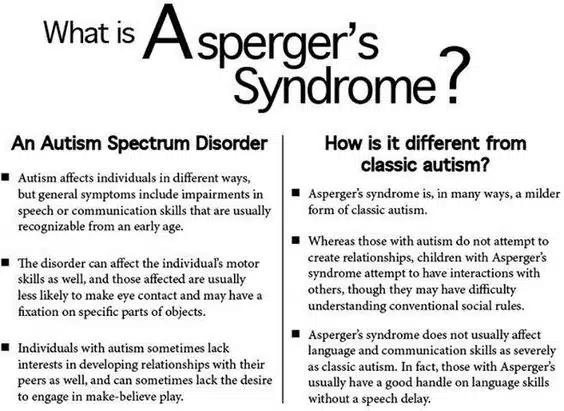Asperger Syndrome Follow-Up Studies can provide valuable insights into the long-term outcomes of this neurodevelopmental condition. By tracking individuals over time, researchers can better understand how Asperger Syndrome affects social, communicative, and behavioral skills throughout the lifespan. Here are some key points on how these studies work:
- Asperger Syndrome Follow-Up Studies typically involve recruiting individuals who were diagnosed with the condition during childhood or adolescence.
- Participants may be assessed at regular intervals over a period of several years or even decades.
- Assessments may involve a range of measures, including standardized tests, clinical interviews, and behavior observations in naturalistic settings.
- Researchers may also collect data on factors such as mental health, quality of life, and social support to better understand the broader impacts of Asperger Syndrome.
- Follow-up studies may also involve comparing the outcomes of individuals with Asperger Syndrome to those without the condition or to normative data from the general population.
- Data from Asperger Syndrome Follow-Up Studies can inform the development of interventions and support strategies tailored to the specific needs of individuals with the condition.
Here are some examples of Asperger Syndrome Follow-Up Studies in action:
- A longitudinal study conducted by researchers at the University of Cambridge followed a group of individuals with Asperger Syndrome from childhood to adulthood. The study found that while many participants struggled with social and emotional difficulties, some also exhibited significant strengths in areas such as memory and attention to detail.
- Another study that was published in the Journal of Autism and Developmental Disorders followed several Asperger Syndrome sufferers over the course of five years. The study found that while some participants improved social and communicative skills over time, others struggled with these areas.
- A recent review of Asperger Syndrome Follow-Up Studies found that many individuals with the condition experience ongoing social interaction, executive functioning, and mental health challenges. However, the review also highlighted the importance of identifying and building on the strengths of individuals with Asperger Syndrome, such as their attention to detail and ability to focus on specific interests.
Asperger Syndrome Follow-Up Studies provide important information on the long-term outcomes of this neurodevelopmental condition. By better understanding how Asperger Syndrome affects individuals over time, researchers and practitioners can develop more effective interventions and support strategies that promote positive outcomes for individuals with the condition.
This post was originally published on April 30, 2023. It was updated on June 5, 2023.















